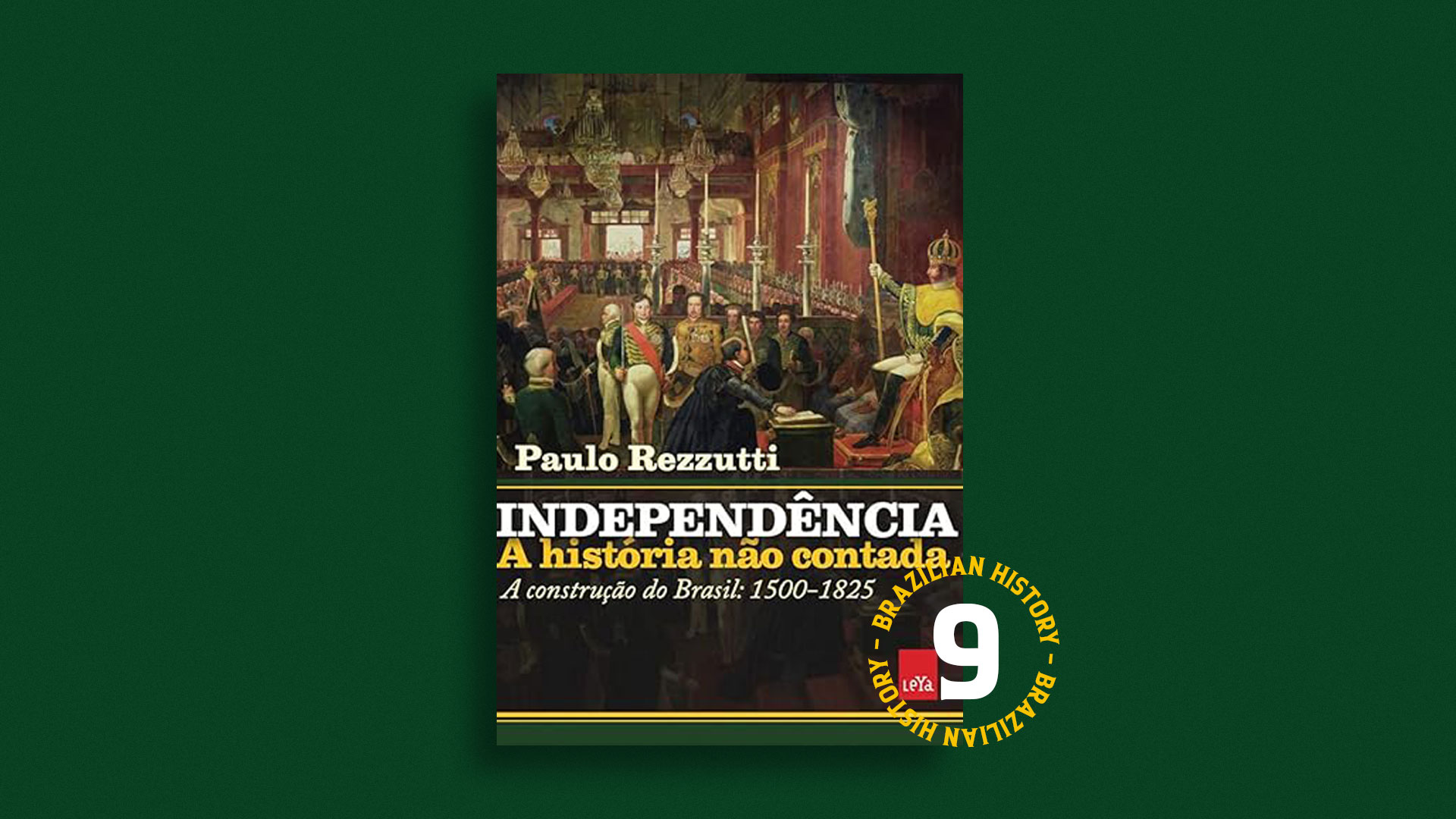Independence: The Untold Story: The Building of Brazil: 1500-1825 is a book written by Paulo Rezzutti, which delves into the backstage and lesser-known figures involved in the process of Brazilian independence. The book highlights characters who played crucial roles in independence, such as José Bonifácio de Andrada e Silva, Dom Pedro I, Maria Leopoldina, among others. Additionally, Rezzutti brings to light lesser-known accounts and details, exploring intrigues, personal conflicts, and political twists that shaped Brazil’s independence.

Through in-depth research and an engaging approach, the author seeks to unveil the complexity of the independence process, showing that it was not merely an isolated act by Dom Pedro I but rather an event filled with nuances and key players who played significant roles in building the Brazilian nation. The book offers a more comprehensive and contextualized view of this important moment in Brazilian history.
The book Independence: The Untold Story: The Building of Brazil: 1500-1825 is a work that captivates readers from its introduction, where we encounter the moving poem “My Homeland,” which reflects the unmistakable talent of Vinicius de Moraes. From that point on, the author takes us on a fascinating historical journey, revealing less explored aspects of Brazil’s independence.
Right from the start, the book stands out with a well-crafted table of contents and an engaging introduction that narrates the story of D. Pedro I’s lost crown and its curious journey to the Imperial Museum, with this introduction serving as a significant critique by the author of how Brazil has treated its historical heritage since the incident. The book’s layout is noteworthy, featuring a distinct design that combines reading pleasure with visual appreciation in each chapter.
The structure of the chapters may challenge readers who prefer a balanced approach in terms of the number of pages per chapter. Some chapters are longer than others, which may require an adjustment in one’s reading approach. Fortunately, the presence of subtitles for each topic makes navigating the book more didactic and aids in comprehension.
The author provides a concise overview of the Braganza dynasty’s origins up to the birth of Dom Pedro I, succinctly exploring the construction of Brazil during the colonial period. The language is clear and direct, making it hard to get stuck on any topic covered. The book also highlights how global events, such as the Enlightenment and the American and French Revolutions, influenced Brazil’s independence, providing a broad and contextualized perspective.
The work includes an abundance of images that enrich the narrative and are described with precise details. The author supports his research with an extensive bibliography and cites his sources throughout the book, including primary and recent sources, demonstrating a commitment to historical accuracy. However, it’s important to note that, in the edition read, the typography color from the middle of the book onwards appears almost transparent, which may be a specific printing error in that edition.
Finally, a significant disagreement arises in the book’s conclusion, where the author claims that Brazilians passively watched Brazil’s independence, similar to what happened on November 15, 1889. However, throughout the book itself, the author presents numerous Brazilian figures who played active roles in the fight for the country’s independence, demonstrating that the process was much more complex and involved various local actors. This difference in perspective is an interesting point of discussion and highlights the multifaceted nature of history.
Independence: The Untold Story by Paulo Rezzutti is an enriching read for those interested in the history of Brazilian independence. The author demonstrates a notable commitment to historical accuracy by using both primary and recent sources, providing the reader with a solid information foundation.
However, there is room for improvement, especially regarding the image gallery. A greater quantity of images or their distribution throughout the text could further enhance the reader’s experience, allowing for a better visualization of events and characters.
The book stands out for its didactic and accessible approach, making the reading fluid and easy to follow. The author effectively contextualizes the events, providing concise and relevant information that enriches the reader’s understanding. His ability to simplify complex themes in Brazilian history is noteworthy.
In summary, Independence: The Untold Story is highly recommended for those wishing to delve into the history of Brazil’s independence. With its reliable sources, clear and didactic writing style, and the ability to engagefully contextualize events, the book is a valuable choice for those seeking to understand the complex process that led to Brazil’s independence. Readers of all ages and levels of historical knowledge will certainly benefit from reading this work.
Reference: REZZUTTI, Paulo. Independência: a história não contada: A construção do Brasil: 1500-1825. Brazil: Leya, 2022.

Matheus Araújo
Matheus Araújo is the founder and editor of Brazilian History. Born in Rio de Janeiro and holding a degree in Advertising and Marketing, his passion for history led him to enroll at the Federal University of the State of Rio de Janeiro, where he is currently pursuing a degree in History Education.
